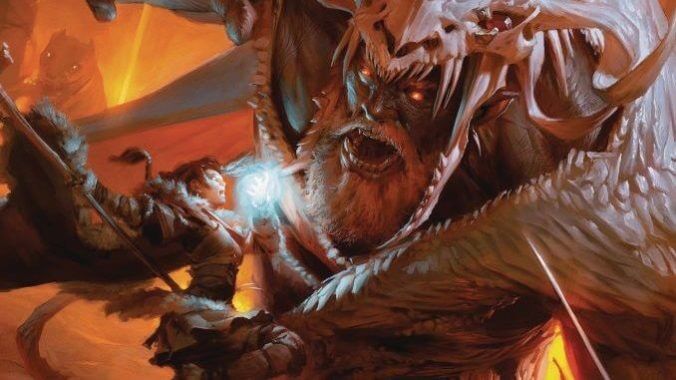
Wizards of the Coast has come under heavy scrutiny after a leaked version of a newly revised Open Games License (OGL) revealed several changes. These changes are generally seen as hurting third-party publishers while attempting to increase Wizard’s profits.
The OGL is essentially a license to use certain aspects of Dungeons & Dragons’ mechanics, like the d20 system, and use them to create royalty-free content. The OGL allowed the creation of homebrew content such as splat books containing new settings, such as the splat book for the wildly popular web show Critical Role, but also entirely new systems derived from the original rules such as Pathfinder’s first two editions. Thanks to the OGL, there’s been a thriving community of third-party tabletop content that is abundantly accessible and legally hassle-free to make.
Earlier this year, WOTC announced OneD&D, a rules update / online integration initiative that would be pushed alongside the existing fifth edition content. But the real issues started with an announcement on D&D Beyond on Dec. 21, which revealed that there would be changes to the existing OGL. Skepticism started almost immediately when there was a clause about royalties needed from content creators who make more than $750,000, but it paled in comparison to the subsequent leak.
On Jan. 5, io9 published an article discussing a supposed leaked version of the OGL 1.1. Allegedly almost 10 times the original document in size, the document’s most significant change is that it completely voids the original OGL by stating that it is “no longer an authorized license agreement.” This creates an uncertain future for companies like Paizo and other third-party creators who based much of their content around the original OGL, as it may no longer exist in the coming days. According to the text of the leak, D&D content creators who don’t sign up for the new OGL won’t be allowed to make any income off their products.
Naturally, this leak was met with immense blowback from players and content creators. The creator of the original OGL and ormer WOTC Vice President Ryan Dancey went on to say that the original license was never intended to be rescinded. Highly popular third-party publisher Kobold Press announced their open-source core ruleset titled Project Black Flag in response. The hashtag #OpenDND has become a rallying cry for players and creators alike.
A Jan. 10 update from Wizards posted to the D&D Beyond Twitter account stated they would be “sharing more information soon.”
On Jan. 12, Paizo responded by announcing its own system-neutral open license. In a press release Paizo described it as “a new open, perpetual, and irrevocable Open RPG Creative License (ORC),” with the emphasis on “irrevocable” serving as an obvious dig at WOTC’s surprise changes to the OGL. Paizo went on to note that its new Open RPG Creative License would be developed with advice from Azora Law, a law firm specializing in intellectual property, and that “multiple leading publishers” have agreed to support the new license.
After days of unrest among the tabletop RPG community, Wizards of the Coast finally addressed the situation directly and explained their reasoning about the new OGL revisions. In a Jan. 13 blog post the company wrote that the changes were never intended to limit or prohibit players or “aspiring designers” from creating their own works. The point, they say, was to prevent “web3” and NFT products based on D&D rules, to prohibit their content from appearing in “hateful and discriminatory products,” and to keep “major corporations” from using the OGL in commercial releases. They’ll be delaying the release of the new OGL while they reconfigure it to “specify that it covers only content for TTRPGs”—and thus won’t impact a myriad of D&D-derived fan-created content, from livestreams to cosplay to charity campaigns. It also won’t implement a royalty system or a licensing provision that many saw as a way for WOTC to claim ownership of fan content.
Even though WOTC has backed down from the most unpopular changes to the OGL, the way they did so has still upset some within the TTRPG community. That blog post ends with a note about how some will call this a win for the fans and a loss for WOTC, but that in WOTC’s eyes it’s a win for them as well because the outcry drove them to attain their goal of soliciting “the input of our community before any update to the OGL.” Of course the whole controversy started in part because the company was devising these changes without any outreach to or discussion with that community, and framing this as a “victory” for both sides rings very hollow. Aaron Shanks, Paizo’s Director of Marketing, summed up the response to WOTC’s blog post pretty well in a tweet earlier today.
Hey Siri, what does gaslighting mean?
— Aaron Shanks (@aaronwshanks) January 13, 2023
Garrett Martin contributed to this piece.